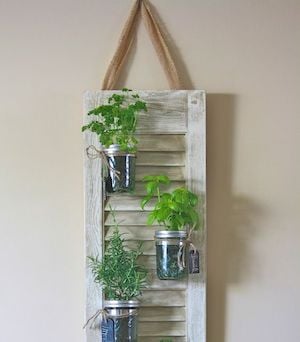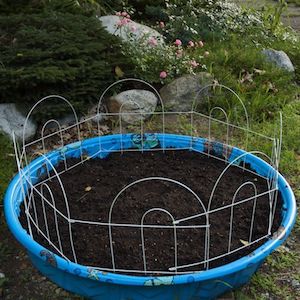Growing your own herb garden can be a rewarding and practical way to enhance your home cooking, while also adding a touch of green to your living space. Whether you have a sprawling backyard or just a small balcony, there’s a DIY herb garden idea that’s perfect for you.

From creative container setups to vertical garden solutions, the possibilities are endless when it comes to designing a space that not only looks beautiful but also serves a functional purpose.
The joy of cultivating your own herbs lies in the accessibility of fresh ingredients right at your fingertips. Imagine stepping outside or reaching across your kitchen window to pluck fresh basil, mint, or rosemary to add to your dishes. These DIY herb garden ideas will inspire you to get your hands dirty and create a garden that reflects your style and needs. Whether you prefer a rustic look or something more modern and sleek, you’ll find plenty of ideas to get started on your very own herb garden project.
Maximize Vertical Space: Think beyond traditional garden beds. Utilize vertical space by incorporating wall-mounted planters, tiered shelves, or hanging pots. This approach not only saves ground space but also allows your herbs to receive more sunlight, which is crucial for their growth.
Consider Companion Planting: When planning your herb garden, be mindful of which herbs grow well together. Some herbs, like basil and oregano, thrive when planted near each other, while others might compete for nutrients. Grouping compatible herbs can lead to a more productive and harmonious garden.
Incorporate a Rotating Watering Schedule: Herbs have different water requirements. Establish a rotating watering schedule to ensure each type of herb gets the right amount of moisture. Overwatering can be just as detrimental as underwatering, so tailoring your watering routine is key to maintaining healthy plants.
DIY Herb Garden Ideas
19. Wooden Pallet Herb Planter from Repeat Crafter Me

18. Pallet Vertical Planter from 99 Pallets

17. DIY Pallet Garden from Old Pallet from Pink When

16. DIY Vertical Garden with Drip Watering System from Houseful of Handmade

15. Easy Pallet Planter from Kelly Moore Blog

14. Wood Planter for the Wall from Shanty 2 Chic

13. Hanging Herbs Using Wood Planks from Homesteading

12. One-Pot Herb Garden from Black Eiffel

11. Stacked Pot Herb Garden Idea (no source found)

10. Vertical Ladder Planter (no source found)

9. Spice Rack Planter (source unknown)

8. Old Chandelier Potted Herbs from Buzzfeed

7. Wash Tub Planter from Liz Marie

6. Herb Planter From a Wagon from This Old House

5. Shoe Organizer Planter for Herbs from Drinking with Chickens

4. Basket Herb Garden Idea (source unknown)

3. Recycled Shutter Planters for Herbs (source unknown)

2. Plastic Kiddie Pool into a Garden Planter from The Spruce

1. Hanging Gutter Planter from Goods Home Design

How can I maintain a herb garden in a small space?
Even with limited space, a productive herb garden is possible. Vertical gardening, tiered planters, or wall-mounted pots are excellent solutions. These methods maximize space and allow you to grow multiple types of herbs without taking up much room. Ensure each herb has enough light and water, and be mindful of overcrowding to avoid competition for resources.
How do I ensure proper drainage for my herb garden?
Proper drainage is crucial to prevent root rot. Use pots with drainage holes or line the bottom of your containers with a layer of pebbles before adding soil. For outdoor gardens, consider raised beds or mounded soil to enhance drainage. Regularly check the soil moisture level and avoid overwatering to keep your herbs healthy.
What is the best soil mix for growing herbs?
A well-draining soil mix is essential for herbs. A combination of potting soil, sand, and compost works well, providing the right balance of nutrients and drainage. For container gardens, adding a bit of perlite or vermiculite can help improve soil aeration, ensuring that the roots do not become waterlogged.
How can I protect my herb garden from pests naturally?
To keep your herb garden pest-free, consider companion planting with pest-repellent herbs like marigolds or garlic. These plants can deter common pests without the need for chemical pesticides. Additionally, regularly inspect your herbs for signs of pests and use natural remedies like neem oil or insecticidal soap if necessary. Maintaining healthy plants through proper watering and fertilization also helps prevent infestations.












